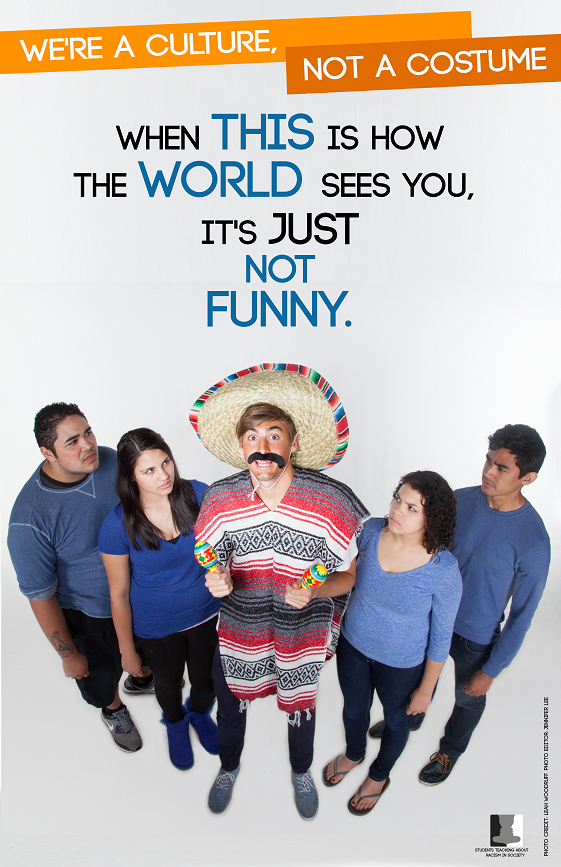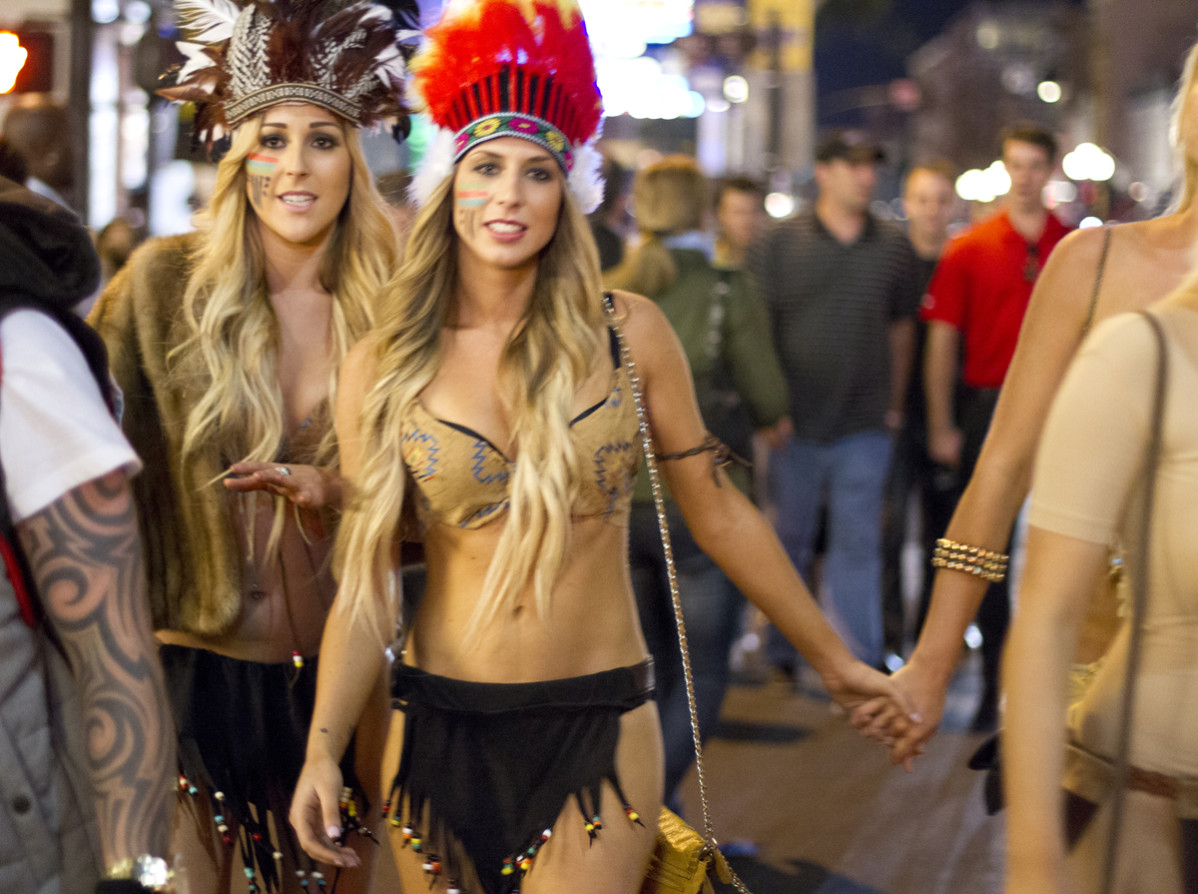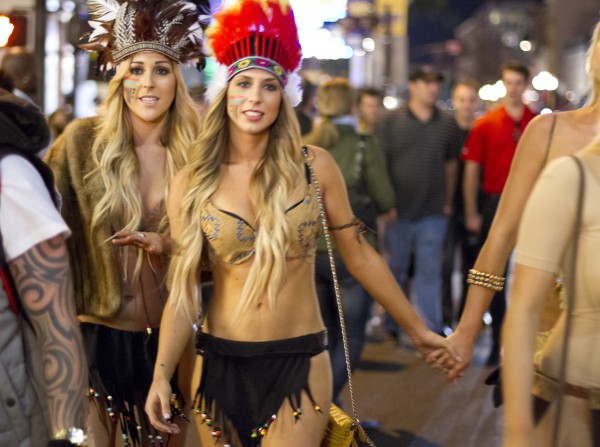Halloween costumes continue to conform to hurtful stereotypes held about marginalized groups
Stereotypes and oppression are not concepts that people tend to associate with Halloween. Oct. 31 usually conjures visions of pumpkins and parties not prejudice, but many costumes people use or dress their children up as on Halloween, conform to the worst stereotypes held about other groups.
“Despite your intentions, your costume, as perceived by others, can still perpetuate harmful stereotypes and stigmas, which can breed more aggression and racism, and trigger a history of lived trauma for those whose bodies you are taking off at the end of the night,” said Michelle Pettis, community action centre co-ordinator.
If people are called out about this, they make excuses like “they did not mean to be harmful,” says social justice comedian Sam Killerman on his website It’s Pronounced Metrosexual. “Intentions don’t matter, effect does,” adds Killerman, writing that regardless of the intent, the targeted identity is still attacked, marginalized, and dehumanized.
Though defining the process by which this occurs is difficult for some, for Pettis it is simple, saying, “acts of appropriation occur when someone who does not experience that oppression is able to ‘play’ as an ‘exotic other’ who does face the discrimination.”
In addition to trans-people, Pettis also discusses how “slutty” Halloween costumes reinforce sexism and other gender stereotypes. Pettis says that women shouldn’t be reduced to sexy objects and that they should not be “slut shamed” because of their costume.
“Halloween costumes can also risk breeding transphobia,” said Pettis. “Humorous or erotic costumes are often of marginalized, oppressed people, and continue dehumanization; but Halloween can also be a safe time to play with gender and experiment. It’s worth asking who is laughing and at whom?”
Resistance to this trend of offensive Halloween costumes is becoming more normalized.

Students Teaching About Racism in Society (STARS) do an annual poster campaign to raise awareness about cultural appropriation around Halloween costumes. Photo: STARS
A poster campaign started on a whim by a U.S-based group called Students Teaching About Racism in Society (STARS) has become an annual event; by continuing this poster campaign, individuals are demonstrating that they are fed up with this yearly phenomenon of cultural appropriation.
According to the STARS website, their goal is to help educate and facilitate discussions around racism while promoting racial harmony and creating a safe, non-threatening environment to allow participants to feel comfortable to express their feelings.
It has also started the long term dialogue STARS feels is necessary, that helps to “raise awareness about how harmful stereotypes can be perpetuated through Halloween costumes.”
So this Halloween take the idea of respecting other cultures into consideration when choosing your costume, and for people who are worried about costume options, Pettis says, “if you thought your costume idea was soooo creative—then you are creative enough to imagine an option that is not hurtful.”



